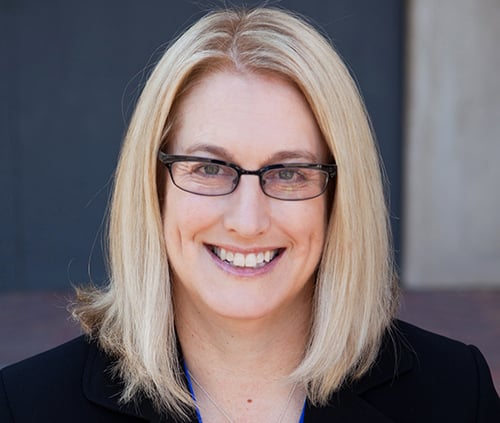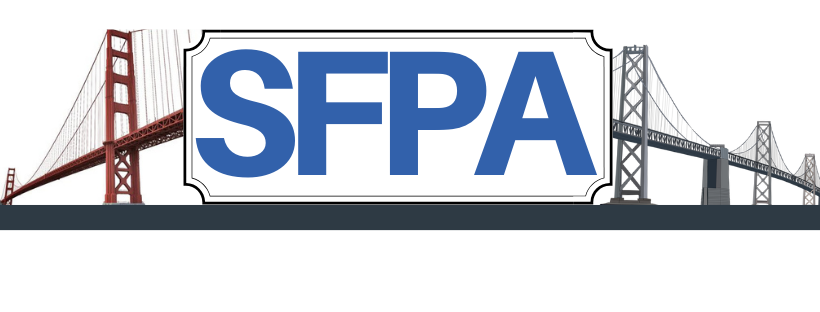ABA Journal News
November 10, 2017
Legal Technology

Mary Juetten
As my first two posts outlined, I believe that technology is necessary to bridge both the education gap and the access-to-justice chasm. Many have reached out on these important topics, and I had the pleasure of interviewing two New York-based leaders who are using technology to improve access to justice.
George Clement and Jonathan Petts have created nonprofit companies that help renters and those facing bankruptcy, respectively.
Clement’s JustFix.nyc provides unrepresented tenants with a self-help web app that assists in gathering evidence, mediating with their landlord through templated communications, reporting violations to city agencies, connecting with organizers and attorneys and presenting a “case history”—the record of all evidence and actions taken—for housing court. The JustFix.nyc Advocate Dashboard allows community organizers, legal aid attorneys, and other advocates to conduct targeted outreach, gather evidence for group class action cases, communicate efficiently with tenants, and track and analyze data about buildings, landlords, and neighborhoods.
Petts’ Upsolve.org is a TurboTax approach to the application for Chapter 7 pro bono to help legal aid organizations multiply the clients they’re able to serve with a fresh start.
Juetten: Can you share some statistics on your respective areas?
Clement: Landlords use harassment and neglected repairs as tactics to force tenants to leave their homes, and 1.2 million New Yorkers live in “deficient housing,” with three or more open code violations such as mold, rat infestations, lead paint, etc. However, the process to seek resolution is complicated and imbalanced—90 percent of tenants in housing court don’t have legal representation, while 90 percent of landlords do.
Petts: Nineteen million American households would benefit from filing for Chapter 7 bankruptcy. And yet, last year, under a half a million did. Millions remain trapped in poverty because they can’t afford a lawyer. By leveraging client self-service, with technology and attorney supervision we reduce the traditional bankruptcy pro bono process from six-to-10 hours of attorney time to two hours.
Juetten: What was your “aha” moment or inspiration?
Clement: Our ‘”aha”’ moment came when we were sitting in the back of a courtroom in Brooklyn housing court. We observed dozens of cases over the course of a few weeks and saw many tenants come to court with no legal representation, carrying a plastic grocery bag filled with miscellaneous papers. When the judge would ask them to describe the poor conditions they were dealing with at home, they would take out their phone and start flipping through photos they had taken of the mold, cockroaches, and leaks in their apartments to illustrate the appalling conditions they were being forced to live in. Unfortunately, judges couldn’t accept the photos as evidence and these tenants were often backed into subpar stipulations. We realized that we could harness this existing behavior to give tenants a better way of gathering and communicating this evidence to make their case in a formal manner.
Petts: I was a corporate bankruptcy lawyer at Morrison & Foerster, helping pro bono clients in financial distress file Chapter 7 bankruptcy cases. I loved the impact the cases made but hated the hours of routine data entry they involved. I thought there had to be a way to automate this.
Juetten: What is your tie to the access-to-justice issue?
Clement: Our team has all unfortunately dealt with these issues firsthand. However, the situations we have been through pale in comparison to what we see our tenant users dealing with every day. Lack of maintenance and unstable housing situations can have significant effects on families’ health, employment, education outcomes, and more. We were all drawn to this work because of the fundamental importance of a safe and healthy home to the well-being of a person, their family, and their community.
Petts: My co-founder Kevin Moore’s father filed for bankruptcy in the ’90s after quadruple bypass surgery. And my other co-founder Rohan Pavuluri began working on this project out of Harvard Law School’s A2J Lab based on his lifelong passion to use technology for social good.
Juetten: Tell us a bit more about how you built this solution?
Clement: Our team has worked with neighborhood-based tenant organizing groups as well as major legal services organizations and practice a model of community-led development to design, build, and distribute our services to those who need it most. Our work is centered around the existing ecosystem, outlining the points at which technology can facilitate crucial work already being done and filling in gaps where tenants aren’t receiving services. Our new products and features are constantly being tested with tenants and advocates as we continue to iterate and expand and improve the tools and services we offer.
Petts: We tested our product with 40 Brooklyn residents who needed to file for bankruptcy. We learned a ton about what does and doesn’t work when designing legal tech products for a low-income user base.
Juetten: What is one tip you can give to lawyers who are reluctant to embrace technology?
Clement: Technology is not going to replace lawyers. Clients will always need and want a human advocate to guide them through complicated, stressful legal matters. In fact, most good legal technology projects are hoping to eliminate or streamline the boring paperwork, research, and desk work, to give lawyers more time to interact with clients or other parties face to face.
Petts: Eight out of 10 low-income Americans can’t afford a lawyer. We need massive change, leveraging technology and unbundled assistance. There are risks involved in going big. But as Cuban baseball coaches used to say, “You don’t get off the island by bunting.”
Juetten: Do you believe that regulation should change to allow nonlawyers to deliver some legal services (like the medical profession)?
Clement: The community health worker model is a great comparison, especially when considering issues faced by low-income populations. Legal aid groups across the country are underresourced and not able to meet 100 percent of the need. Exploring models in which a nonlawyer advocate can provide crucial information around legal issues is necessary to do a better job of serving the most at-risk clients. With high quality subject matter training and experience, these nonlawyer advocates can fill a massive gap in services.
Petts: Yes! More importantly though, unbundling needs to be allowed in the bankruptcy sphere. Regulation requiring fully bundled representation is well-intentioned, but it significantly increases costs prevents thousands and perhaps millions from accessing a fresh start.
The above two examples blend passion for pro bono with enabling technology. This approach breaks down the access-to-justice barrier.
Mary E. Juetten, CA, CPA, JD is founder and CEO of Traklight. In 2015, Mary co-founded Evolve Law, an organization for change and technology adoption in the law. She was named to the ABA’s Legal Technology Resource Center 2016 Women in Legal Tech list and the Fastcase 50 Class of 2016. She is the author of Small Law Firm KPIs: How to Measure Your Way to Greater Profits. She is always looking or success stories where technology has been used to bridge the justice gap, from pro-bono through low-bono to nontraditional legal services delivery. Reach out to her on Twitter @maryjuetten.
http://www.abajournal.com/news/article/access_to_justice_with_non_profit_technology

